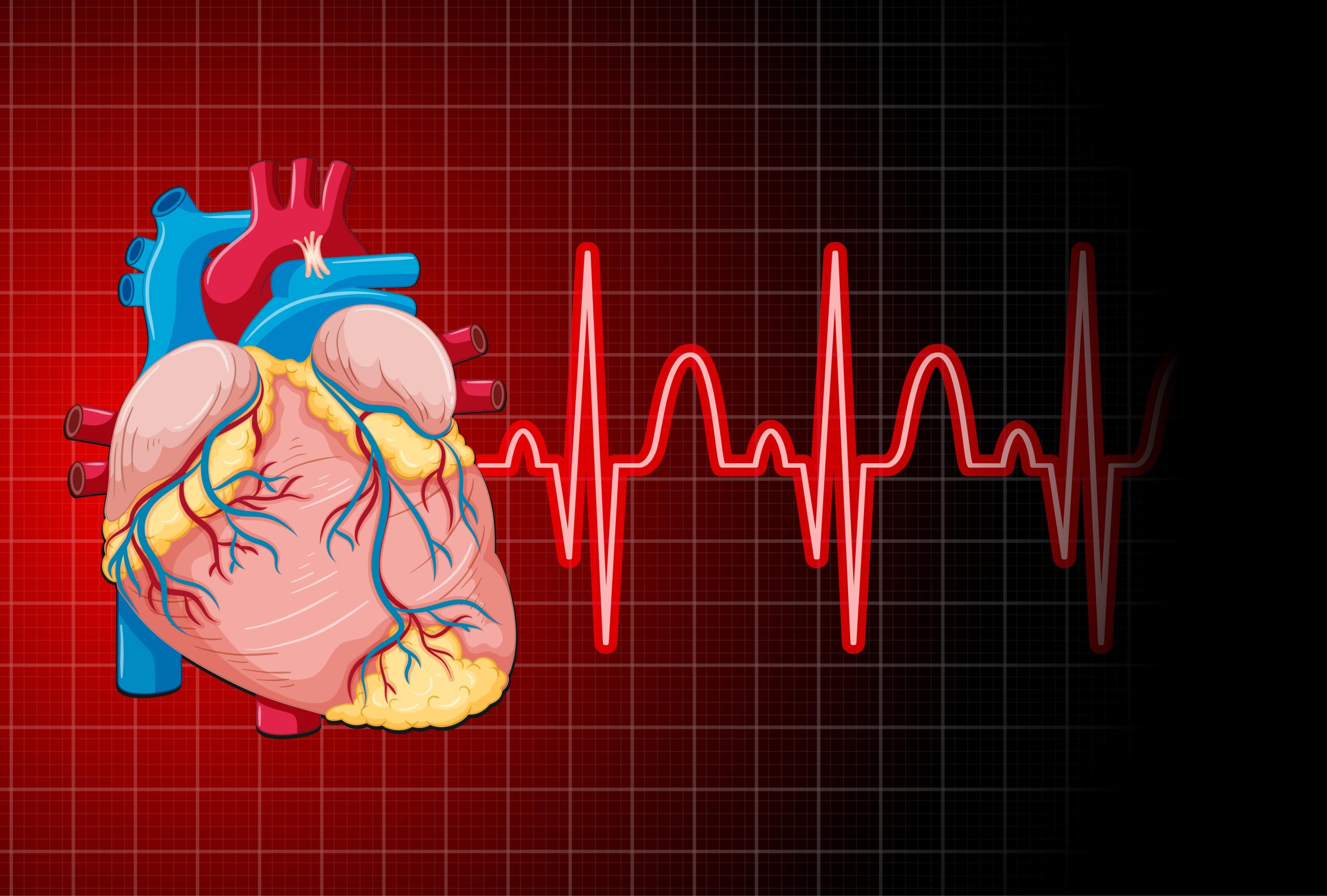What to do after your Cardiologist near me appointment
What to do after your Cardiologist near me appointment
Blog Article
The Duty of Cardiology in Precautionary Health and Health Services
Cardiology is increasingly recognized for its critical role in preventative wellness and health solutions. By emphasizing proactive methods, cardiologists intend to lower the occurrence of heart diseases. This method encompasses risk assessments, way of life modifications, and regular testings. Via these efforts, individuals are encouraged to take control of their heart wellness. The integration of innovation and cooperation with other health care carriers raises crucial inquiries about the future of preventative treatment. What might this evolution entail?

Understanding Preventative Cardiology
Understanding preventative cardiology includes acknowledging its essential role in lowering heart disease risk through proactive measures. This branch of medicine emphasizes the importance of lifestyle modifications, consisting of diet, stress and anxiety, and exercise administration, to stop heart-related concerns prior to they develop. It promotes for routine health and wellness testings and education to encourage people in making informed health choices.Preventative cardiology also incorporates the identification of threat factors such as hypertension, diabetes mellitus, and high cholesterol, advising individuals to embrace much healthier behaviors - Cardiology Jupiter. By concentrating on prevention instead of response, this approach not just boosts individual health results yet likewise minimizes the total concern on medical care systems. Furthermore, it advertises collaboration amongst medical care suppliers, neighborhoods, and people, cultivating a holistic method to heart wellness. Ultimately, comprehending preventative cardiology motivates a change in the direction of a positive frame of mind, focusing on long-lasting health and health
Danger Evaluation and Administration
Danger assessment is crucial in recognizing cardiovascular threats that can bring about serious health and wellness problems. Effective management of these threats typically entails applying lifestyle alteration techniques, such as improved diet regimen and increased physical activity. By recognizing and dealing with these elements, individuals can greatly reduce their likelihood of creating heart diseases.
Identifying Cardiovascular Dangers
Although many aspects add to cardiovascular health and wellness, identifying cardio dangers is crucial for reliable prevention and management. Cardiovascular danger evaluation includes assessing numerous elements, including household background, sex, age, and way of life behaviors such as cigarette smoking and physical inactivity. Furthermore, health problems like high blood pressure, diabetic issues, and high cholesterol substantially influence an individual's risk account. Healthcare experts make use of tools such as risk calculators and biomarker examinations to quantify these risks and stratify clients appropriately. Early recognition enables targeted interventions, directing clients toward ideal management strategies. By recognizing these threats, cardiologists can work together with people to produce customized plans that emphasize tracking and aggressive treatment, ultimately minimizing the likelihood of negative cardiovascular occasions.
Way Of Life Adjustment Techniques
Efficient way of life adjustment strategies play an important duty in managing cardio wellness and mitigating affiliated dangers. These approaches incorporate nutritional modifications, enhanced exercise, and cigarette smoking cessation. A heart-healthy diet rich in fruits, vegetables, whole grains, and lean proteins can greatly decrease cholesterol levels and blood pressure. Normal exercise, such as cardio exercises, boosts and enhances the heart blood circulation. Additionally, giving up smoking lowers the danger of heart condition and enhances total health. Healthcare specialists frequently utilize danger assessment devices to customize these modifications to specific needs successfully. By integrating lifestyle become routine treatment, cardiologists can encourage patients to organize their heart health and wellness, ultimately bring about improved end results and minimized medical care prices.
Lifestyle Modifications for Heart Health
To maintain suitable heart health and wellness, individuals must adopt a range of way of life modifications that greatly lower the probability of heart diseases. A balanced diet rich in fruits, veggies, whole grains, and lean healthy proteins is crucial. Reducing hydrogenated fats, trans fats, and salt consumption can considerably decrease cholesterol degrees and blood stress. Routine exercise, such as vigorous strolling or biking for a minimum of 150 mins per week, also plays a considerable duty in enhancing and enhancing the heart circulation.Additionally, handling stress and anxiety with techniques like mindfulness and reflection can have a favorable effect on heart wellness. Avoiding tobacco items and limiting alcohol usage even more contribute to a much healthier cardio system. Preserving a healthy weight is essential, as weight problems is a major risk aspect for heart problem. By incorporating these way of living modifications, people can cultivate not only their heart top article wellness yet likewise their total health, resulting in a more vibrant and active life.
The Significance of Normal Testings
Along with way of life modifications, normal screenings play a vital role in maintaining heart health and preventing cardiovascular conditions. These analyses are significant for identifying threat factors such as hypertension, high cholesterol, and diabetic issues, which can result in significant complications if left unattended. Cardiologists suggest regular evaluations to keep an eye on heart function and identify irregularities early, permitting prompt intervention.Screenings, which may include blood examinations, electrocardiograms, and echocardiograms, offer important information for tailored therapy plans. This proactive method equips people to make educated choices concerning their health and wellness, boosting total health. Additionally, routine exams cultivate a more powerful doctor-patient relationship, motivating open dialogue about heart health concerns.
Integrating Modern Technology in Preventive Treatment
Accepting technology has actually reinvented preventative care in cardiology, providing ingenious devices that improve client tracking and involvement. Wearable devices, such as smartwatches and fitness trackers, make it possible for people important link to monitor their heart rate, task degrees, and general health metrics in real-time. These gadgets not just give prompt feedback but additionally help with information showing medical care carriers, permitting timely interventions when necessary.Additionally, telemedicine has arised as a famous function in cardiology, allowing remote appointments and follow-ups. This accessibility ensures that people can receive care without the barriers of traveling and time restraints. Mobile health applications additional support preventative measures by offering customized understandings and suggestions for medicine adherence, lifestyle adjustments, and scheduled testings.
Client Education and Empowerment
Empowerment through education and learning is necessary in the domain of preventative cardiology, as notified individuals are more probable to take part in aggressive health and wellness actions. By recognizing their cardio health and wellness, people can make educated decisions pertaining to way of living alterations and adherence to treatment plans. Educational efforts, consisting of workshops, informative handouts, and on-line sources, serve to enhance patient knowledge about danger factors such as high blood pressure, cholesterol degrees, and the relevance of routine exercise.Moreover, empowering clients fosters a collaborative strategy to health administration. When clients recognize their conditions and the ramifications of their choices, they are more likely to join conversations with health care suppliers, leading to customized treatment why not try this out approaches. This partnership not only advertises liability however likewise boosts inspiration for keeping a heart-healthy way of living (Cardiology care). Ultimately, person education is a cornerstone of preventative cardiology, outfitting people with the devices essential to organize their cardiovascular health and wellness
Collaborating With Other Healthcare Professionals
Effective patient education and learning prepares for joint initiatives among medical care specialists in the field of preventative cardiology. Cardiologists, health care medical professionals, nutritionists, and psychological health professionals need to function in synergy to maximize person outcomes. By sharing understandings and methods, these professionals can produce comprehensive treatment strategies that address both physical and emotional facets of heart health.Regular interdisciplinary meetings foster communication, making certain that all staff member are educated concerning individual progression and difficulties. This collaboration assists in timely treatments and modifications to therapy plans, boosting the efficiency of preventative measures.Furthermore, incorporating innovation, such as shared electronic health documents, improves information access and enhances coordination initiatives. This all natural approach not only boosts patient adherence to way of life modifications but also equips individuals to organize their cardio wellness. Inevitably, collaboration among health care professionals is essential in advertising a proactive method to heart problem avoidance.
Regularly Asked Questions
What Is the Distinction In Between Cardiology and General Health Care?
Cardiology focuses on identifying and treating heart-related problems, while basic wellness treatment includes a broader variety of medical services resolving different wellness concerns - Dr Garcia. Each plays a crucial function in preserving general wellness and well-being
Just how Typically Should I See a Cardiologist for Preventive Treatment?
The frequency of cardiologist brows through for preventative treatment differs based on private risk factors. Normally, yearly assessments are advised for those with status quo, while others might need much less constant examinations based on general heart wellness.
Can Stress And Anxiety Impact My Heart Wellness Considerably?
Anxiety can considerably influence heart wellness by contributing to high blood pressure, inflammation, and harmful way of living choices. Individuals experiencing chronic anxiety might go to boosted risk for cardiovascular concerns, demanding reliable tension management methods for much better heart wellness.
Exist Certain Heart Conditions I Should Be Aware Of?
Individuals need to recognize problems like high blood pressure, coronary artery disease, heart failure, arrhythmias, and valvular cardiovascular disease. Recognizing these problems early can bring about better management and improved overall heart health and wellness outcomes.

What Are the Expenses Connected With Preventative Cardiology Services?
The costs connected with preventative cardiology services can differ considerably. Elements such as area, kind of service, and insurance policy coverage influence overall expenses, making it necessary for individuals to seek thorough information details to their circumstances. With these initiatives, patients are encouraged to take control of their heart health and wellness. It promotes for regular health and wellness screenings and education and learning to encourage people in making enlightened health and wellness choices.Preventative cardiology likewise includes the identification of threat variables such as hypertension, diabetes mellitus, and high cholesterol, advising individuals to take on healthier behaviors. In addition, it promotes cooperation amongst health care suppliers, areas, and patients, promoting an alternative approach to heart wellness. Regular physical activity, such as quick walking or cycling for at the very least 150 mins per week, also plays a significant role in boosting and strengthening the heart circulation.Additionally, taking care of stress via methods like mindfulness and meditation can have a favorable influence on heart health and wellness. Cardiology specializes in detecting and treating heart-related problems, while general health and wellness care encompasses a broader array of medical services attending to numerous health and wellness concerns.
Report this page